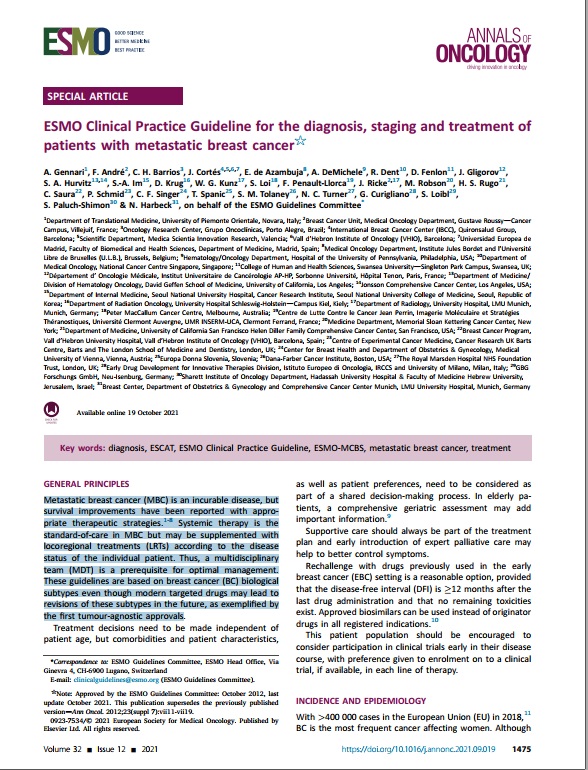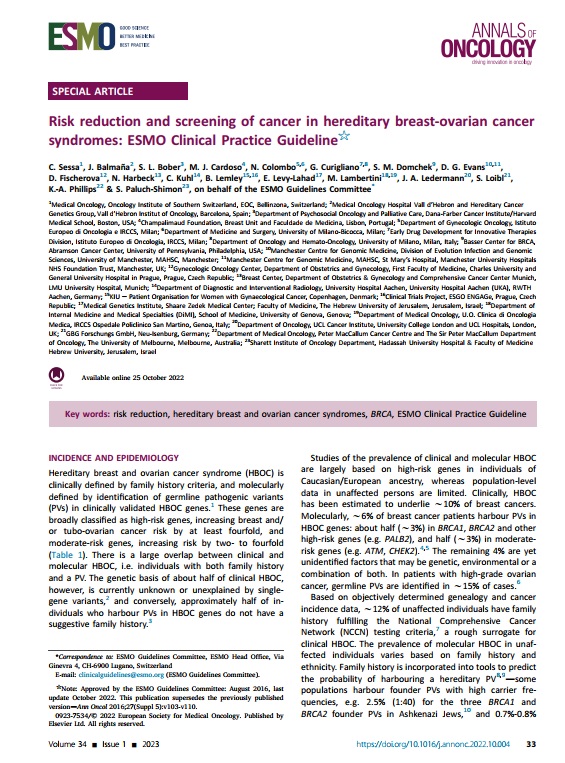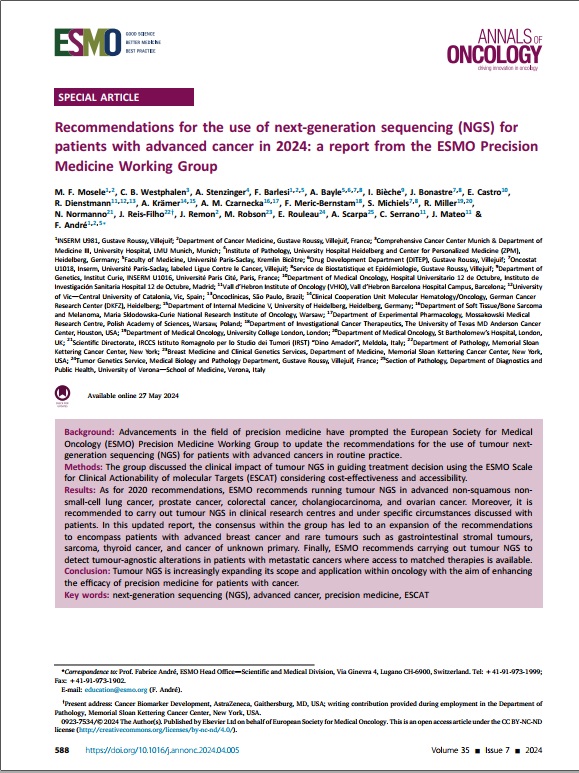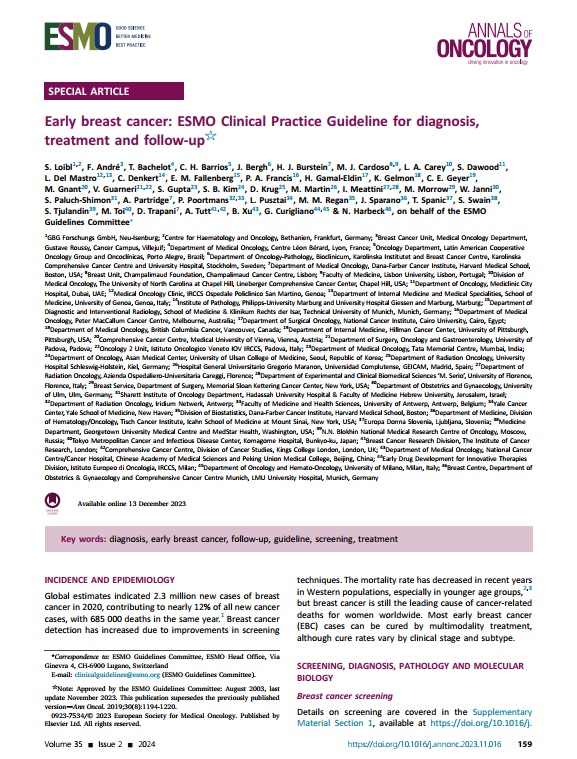scientific articles
Metastatic breast cancer (MBC) is an incurable disease, but survival improvements have been reported with appropriate therapeutic strategies.1-8 Systemic therapy standard-of-care in MBC but may be supplemented with locoregional treatments (LRTs)according to the disease status of the individual patient. Thus, a multidisciplinary team (MDT) is a prerequisite for optimal management. These guidelines are based on breast cancer (BC) biological subtypes even though modern targeted drugs may lead to revisions of these subtypes in the future, as exemplified by the first tumour-agnostic approvals
Hereditary breast and ovarian cancer syndrome (HBOC) is clinically defined by family history criteria, and molecularly defined by identification of germline pathogenic variants (PVs) in clinically validated HBOC genes.1 These genes are broadly classified as high-risk genes, increasing breast and or tubo-ovarian cancer risk by at least fourfold, and moderate-risk genes, increasing risk by two- to fourfold There is a large overlap between clinical and molecular HBOC, i.e. individuals with both family history and a PV. The genetic basis of about half of clinical HBOC, however, is currently unknown or unexplained by singlegene variants,2 and conversely, approximately half of individuals who harbour PVs in HBOC genes do not have a suggestive family history
Considering the evolving field of drug development and genomic data, the European Society for Medical Oncology (ESMO) Precision Medicine Working Group (PMWG) sought to update recommendations for the use f next-generation sequencing (NGS) for patients with metastatic cancers published in 2020. After several discussions among the members of the group, a consensus was reached to adopt the same methodology as per the previous publication.
Global estimates indicated 2.3 million new cases of breast cancer in 2020, contributing to nearly 12% of all new cancer cases, with 685 000 deaths in the same year.1 Breast cancer detection has increased due to improvements in screening techniques. The mortality rate has decreased in recent years in Western populations, especially in younger age groups,2,3 but breast cancer is still the leading cause of cancer-related deaths for women worldwide. Most early breast cancer (EBC) cases can be cured by multimodality treatment, although cure rates vary by clinical stage




